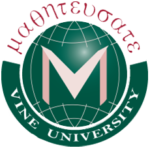Doctor of Intercultural Studies - Missiology (DISM)
The purpose of the Doctor of Intercultural Studies – Missiology (DISM) is to prepare leaders more deeply for religious leadership and scholarship in intercultural settings through advanced study and research in the interdisciplinary field combing intercultural studies and missiology from the Korean Protestant perspective. The program is intended to qualify graduates for intercultural ministry and academic teaching.
Program Learning Outcomes
Students graduating from the Doctor of Intercultural Studies – Missiology (DISM) will be able to:
- Demonstrate a comprehensive knowledge of the history of intercultural studies and missiology including contemporary and Korean church perspectives.
- Demonstrate a mastery of theological foundations and methodology of the interdisciplinary field of intercultural studies/missiology.
- Demonstrate advanced competence to apply research methods and conduct original research and writing that contributes to intercultural studies/missiology.
- Demonstrate capacities for religious leadership in intercultural settings and teaching suitable for higher education.
Degree Requirements
This degree requires 60 semester credits, which may be completed within three to four years of full-time study – two years of coursework followed by one to two years of comprehensive examinations and dissertation research and writing. The Coursework encompasses four areas: biblical and historical studies (3 courses), intercultural studies (3 courses), missiological studies (4 courses), and contextual studies (3 courses). All students must complete all coursework with a min. 3.30 GPA to qualify for graduation. All doctoral students are required to take comprehensive examinations to demonstrate that they are prepared to advance to candidacy and undertake independent research. Students who successfully achieve candidate status by passing the exams will enroll in a doctoral dissertation course to begin independent research and dissertation under the supervision of a faculty mentor. All students must present an acceptable dissertation and pass an oral defense of the dissertation before the student’s dissertation committee to qualify for the doctoral degree. The maximum time limit for completion of the DISM is eight years. This time limit may only be extended in special circumstances by petition to the academic dean.
Curriculum
- Biblical and Historical Studies: BI 705 Jesus Christ and the Gospels (4), BI 712 Missionary Speeches in Acts (4), TH 753 Christianity in Asia (4)
- Intercultural Studies: IS 758 Intercultural Leadership (4), IS 741 Ethical Formation in Intercultural Context (4), IS 770 Language and Culture (4)
- Missiological Studies: MS 800 Missiological Research and Writing (4), MS 804 Missiology (4), MS 818 Mission Strategies Seminar (4), MS 851 Korean Mission History Seminar (4)
- Contextual Studies: IS 763 Korean Worldview in Global Context (4), MS 893 Encountering Islam Seminar (4), MS 894 Evangelism in Muslim Context Seminar (4)
- Doctoral Dissertation: MS 880 Dissertation Research and Writing (8)
Comprehensive Examinations and Dissertation
Completion of the coursework phase of the doctoral program requires a mastery of the four subject areas of the doctoral curriculum: biblical/historical studies, intercultural, missiological, and contextual studies. The mastery of the subject areas is demonstrated by sustaining four written comprehensive examinations during the regular semester following the completion of coursework. Comprehensive examinations will take place over five days. Questions will be given at the beginning of the exam week, and answers must be submitted electronically to the program director at the end of the exam week. Students will be able to use all printed and electronic resources they desire to formulate their answers. No proctor is required. Completion of examinations requires a two-hour oral examination based on the four written exams. The exams will be graded by a select committee of the faculty using the categories Fail, Sufficient, and Exceptional. No examination, written or oral, may be attempted more than twice.
Students must submit an acceptable dissertation proposal to the faculty mentor within one year after advancement to degree candidacy. A carefully designed dissertation proposal (10 pages in length) must demonstrate that the research topic is chosen thoughtfully, appropriate methodology is applied, the chapter-by-chapter outline is logical and coherent, and the bibliography is relevant and reasonably comprehensive. Doctoral candidates must submit an acceptable scholarly dissertation and pass an oral defense of the dissertation before the dissertation committee as the final requirements for graduation. As the centerpiece of the doctoral study at Vine, the dissertation must demonstrate competence to conduct independent scholarly inquiry using appropriate research methods and to produce original research and writing that contributes to the interdisciplinary field combining intercultural studies and missiology. The normal length of the dissertation is between 150 and 200 pages. The student’s dissertation committee consisting of the primary mentor (chair) and two other members of the Vine faculty will examine the dissertation and will decide whether the dissertation is ready for a public defense.
Dissertation Committee
The faculty mentor and two other members of the Vine faculty constitute the student’s dissertation committee. Serving as the committee chair, the primary mentor identifies the remaining committee members to serve as internal readers. When the student prepares an acceptable dissertation proposal, the mentor brings the proposal and the names of the committee members to the program director for the academic committee’s final approval. The mentor/chair determines the extent to which the other committee members are asked to participate in the dissertation process.
